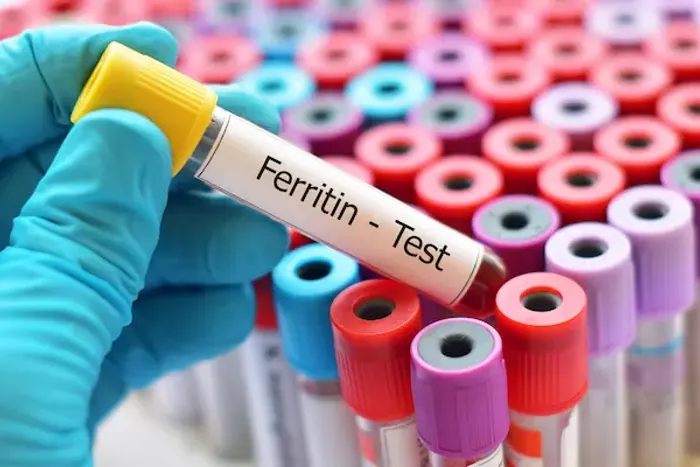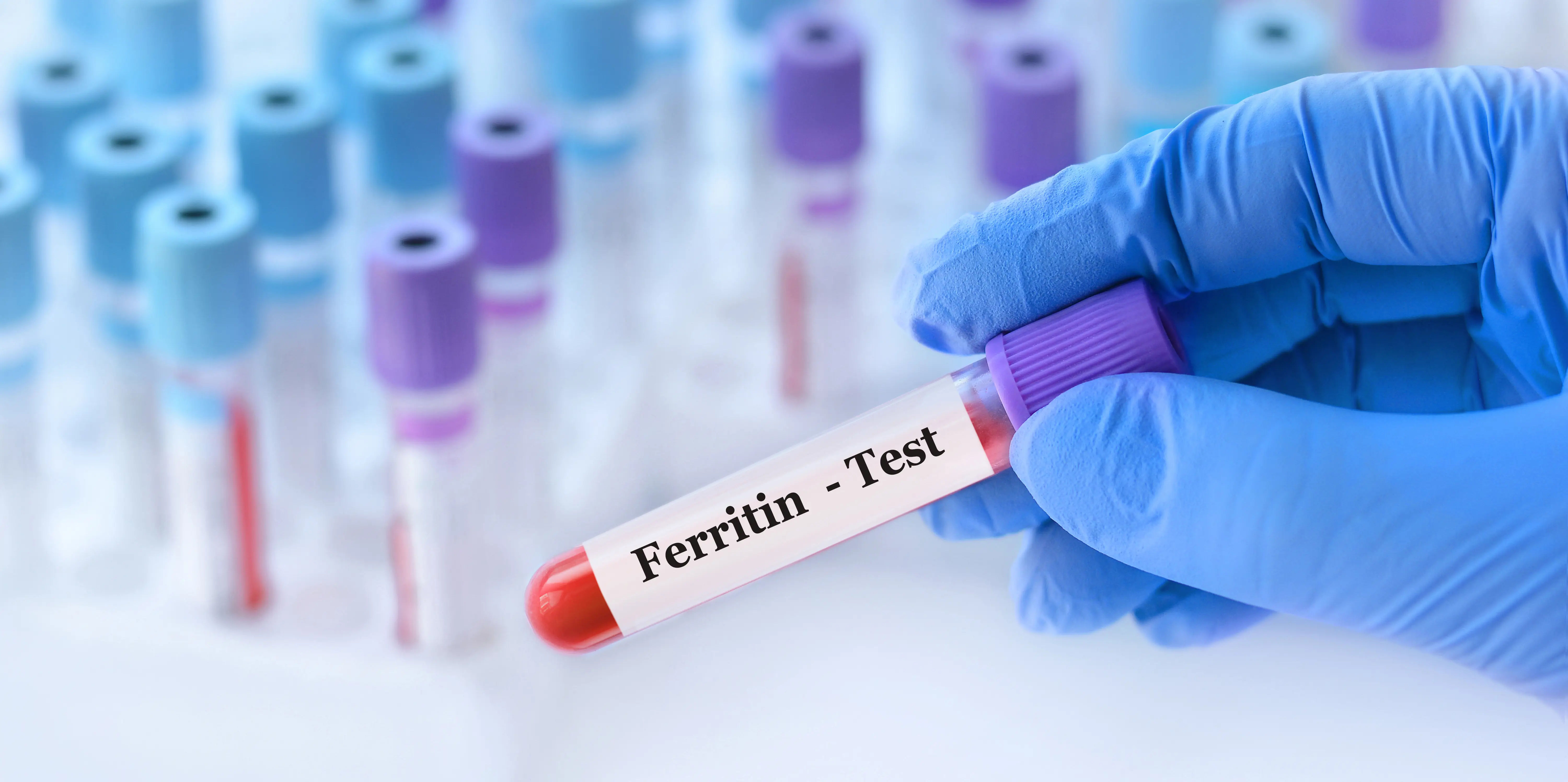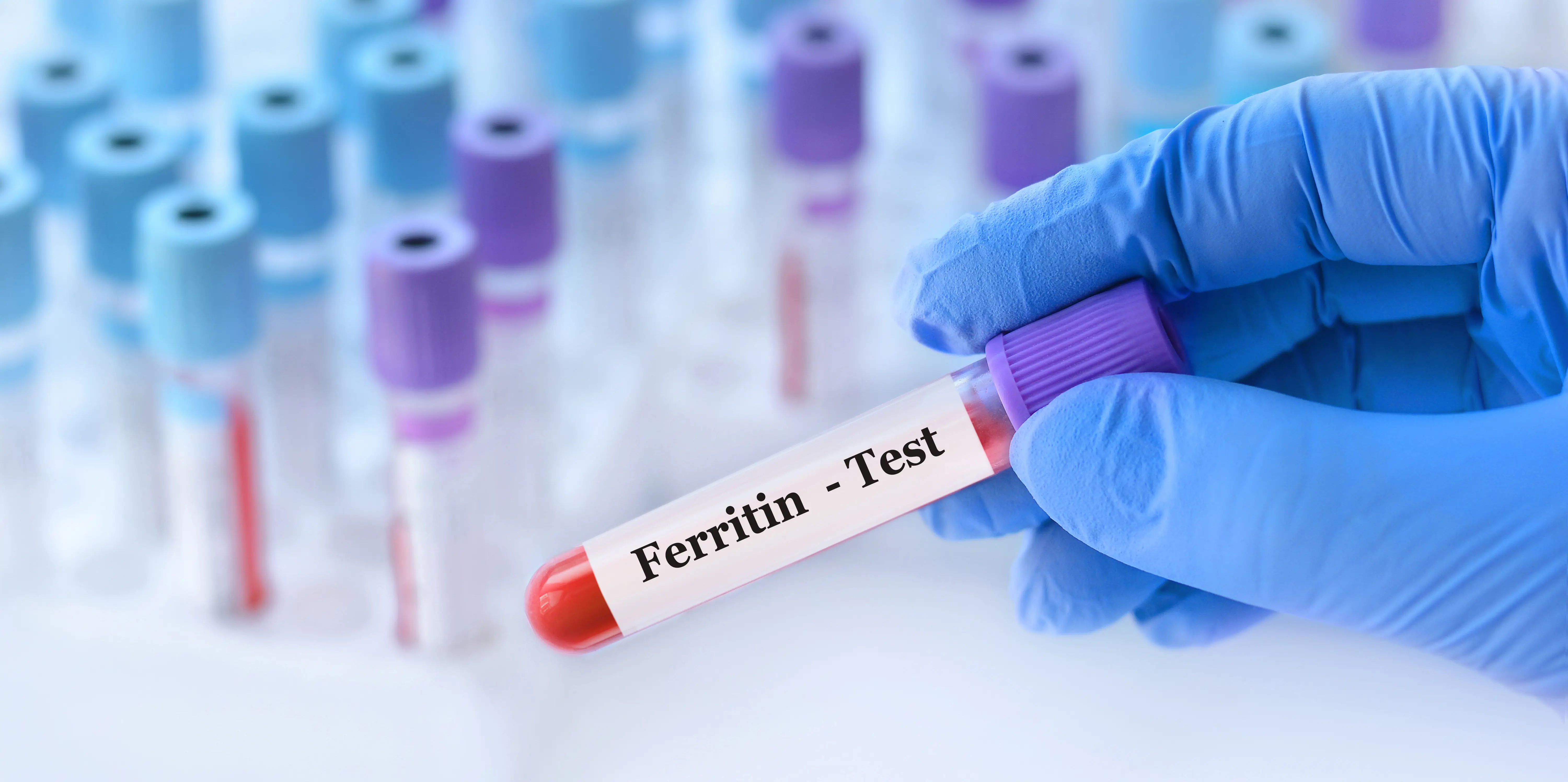Fitness Fatigue: Ferritin Testing for Young Indian Men with Active Lifestyles
Understand how low ferritin levels can cause fitness fatigue in young Indian men. Learn about the importance of ferritin testing and how to manage iron deficiency for better health and performance.


If you're a man in your 30s committed to regular workouts, strength training, or endurance goals, you’ve likely invested time, discipline and dedication into your fitness journey. But what happens when, despite the best routines, you start feeling persistently tired? If fatigue, sluggishness during workouts, or slow recovery are holding you back, even with proper sleep and diet, it may be time to consider an iron-related cause. A ferritin test for young men can reveal hidden deficiencies that impact energy, stamina, and performance. Many gym-goers and fitness enthusiasts unknowingly suffer from low iron stores, especially those following vegetarian or vegan diets. Ferritin, a blood protein that stores iron, is a crucial marker that gives more insight than a simple haemoglobin test. In this article, we’ll explore why ferritin matters, how low levels affect male fitness, and why booking an iron test for gym goers is a smart move for any man committed to physical excellence.
Understanding Ferritin and Iron in the Male Body
Iron is an essential mineral required for carrying oxygen in the blood, fuelling metabolism, and supporting muscle function. Ferritin is a storage form of iron found in your cells, and it reflects how much iron your body has in reserve. A ferritin test helps detect iron deficiency even before it causes anaemia. Unlike haemoglobin tests, which measure circulating red blood cells, ferritin reveals your stored iron, vital for recovery, stamina and endurance. If your ferritin is low, your muscles may not get the oxygen they need to perform optimally, resulting in fatigue, poor gains, or plateaus in training.
Why Ferritin Testing Matters for Fit Indian Men?
For men in the 30 to 40 age group who exercise regularly, feeling energised is essential. However, several hidden reasons can deplete iron levels, especially in Indian men:
1. High-intensity training and endurance workouts
Frequent intense exercise, such as weightlifting, HIIT, or marathon prep, increases red blood cell turnover and iron demand. Intense workouts may also lead to minor internal bleeding through the gastrointestinal tract or red blood cell destruction in the feet (called footstrike haemolysis) — both contributing to lower ferritin levels.
2. Vegetarian or vegan diets
Indian diets are often vegetarian, and while plant-based foods do contain iron, it’s non-heme iron — which is harder for the body to absorb. Without adequate vitamin C or iron-enhancing food combinations, many men develop suboptimal iron stores even when eating “healthy.”
3. Poor absorption of iron
Conditions like gastritis, frequent antacid use, or subclinical gut issues can impair iron absorption. Over time, these can lead to fatigue and sluggishness despite clean eating.
4. Hidden blood loss
Low-grade bleeding from piles, frequent nosebleeds, or urinary microbleeds (from supplements or intense activity) may go unnoticed but still reduce iron levels over months. A simple ferritin test for young men can uncover these silent deficiencies and help reclaim lost energy.
Symptoms of Low Ferritin in Fit Men
Low ferritin doesn’t always mean full-blown anaemia. Many men with “normal” haemoglobin still have low iron stores that affect performance. Symptoms to watch for include:
- Early fatigue during workouts
- Needing longer rest times between sets
- Loss of stamina or slower running pace
- Poor muscle recovery
- Brain fog or lack of focus during workouts
- Restless legs or poor sleep
- Pale skin or cold hands and feet
These may be dismissed as "overtraining" or "age catching up," but often, a ferritin deficiency is the hidden culprit.
Ferritin vs Iron Tests – What's the Difference?
Many men confuse iron levels with ferritin. Here's the distinction:
- Serum Iron Test: Measures iron in the blood right now. It fluctuates depending on meals, time of day, or supplements.
- Ferritin Test: Measures iron storage. More stable and predictive of long-term status.
- Total Iron Binding Capacity (TIBC) and Transferrin Saturation: Show how well iron is transported in the blood.
If you're experiencing symptoms of fatigue but your iron levels look “normal,” it’s ferritin that gives the real story.
When Should You Take a Ferritin Test?
A ferritin test for young men is recommended if you:
- Regularly engage in high-intensity or endurance exercise
- Follow a vegetarian or vegan diet
- Are experiencing ongoing tiredness despite good sleep
- Notice declining gym performance or recovery
- Have unexplained hair fall or brittle nails
- Have frequent digestive issues or use antacids often
- Are planning to increase your fitness intensity or prep for a marathon/bodybuilding competition
- A proactive approach to testing can help optimise your performance and protect long-term health.
What Does the Ferritin Test Involve?
Taking the iron test for gym goers is simple:
- Sample Type: Blood sample drawn from a vein
- Preparation: Fasting may be recommended; your doctor or lab will confirm
- Test Time: Takes only a few minutes
- Report Time: Results are usually available within 24 to 48 hours
- Normal Ferritin Range for Men: 30–400 ng/mL (fitness-conscious men often function best with ferritin >50 ng/mL)
If your ferritin level is low, your doctor may suggest dietary changes, iron supplements or further testing to find the root cause.
Interpreting the Results
Here’s what the results mean:
- Low Ferritin (<30 ng/mL): Indicates depleted iron stores, even if haemoglobin is normal. Common in athletes and vegetarians.
- Normal Ferritin (30–100 ng/mL): Considered healthy, though active men may feel better closer to the higher end.
- High Ferritin (>300–400 ng/mL): Could point to inflammation, liver issues or iron overload. Requires further assessment.
Remember: low ferritin doesn’t always need medication — often, simple dietary adjustments and iron-rich meals can restore energy levels and support optimal gym performance.
Iron-Rich Diet Tips for Fit Indian Men
If your ferritin is low, here’s how to eat smarter:
- Include iron-rich foods: Palak (spinach), methi, rajma, chana, lentils, tofu, dates, jaggery, pumpkin seeds
- Pair iron with vitamin C: Squeeze lemon on dal, eat oranges with chana
- Avoid tea/coffee with meals: These inhibit iron absorption
- Cook in iron utensils: Can increase iron content in food
- Limit calcium-rich foods around iron meals: As calcium competes with iron for absorption
Book Your Iron & Ferritin Tests with Apollo 24|7
Apollo 24|7 offers quick and reliable testing packages that help fitness-focused men take control of their health. Here are two excellent options to get started:
1. Iron Studies Test: Includes serum iron, TIBC, transferrin saturation and ferritin. Ideal for gym-goers wanting a complete iron profile.
2. Ferritin, Serum Test: Directly measures stored iron levels and helps identify silent deficiencies.
Both tests can be booked online with home sample collection and fast digital reports.
Get Your Health Assessed Here
Conclusion
Fatigue in fit, health-conscious men is often overlooked or misattributed to stress or poor recovery. But in many cases, the root cause lies in low iron stores. A ferritin test for young men provides crucial insights that a regular haemoglobin check may miss. Whether you're lifting weights, prepping for endurance events, or simply want more energy during the day — understanding your iron status can make a big difference. Don't let hidden deficiencies hold you back. Book your iron test for gym goers today with Apollo 24|7 and get back to achieving your fitness goals with renewed strength and stamina.


